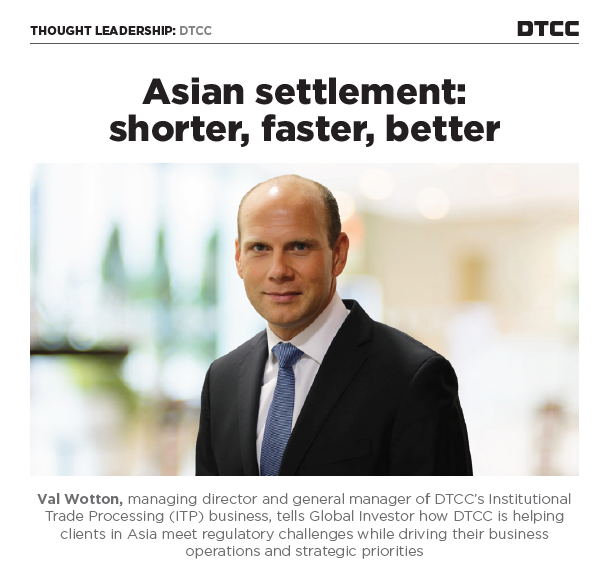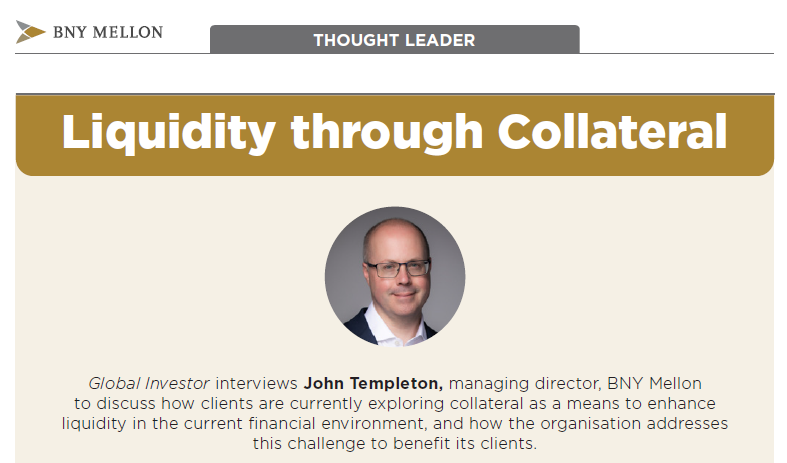ADS Securities: The rise of fund centres
Why have fund centres become important?
When people think of establishing a fund, if they don’t have a specific reason to select their own jurisdiction, their best option for ease of business is to go to a fund centre.
Fund centres have emerged partly because of the interest in collective investment schemes and the needs for segregated, protected and well-regulated funds.
So businesses are looking for a location where it is relatively easy to become established and to operate.
This is why, for example, Luxembourg has emerged as a very popular jurisdiction to set-up in.
The advantages it offers are clear: it is within Europe, it is under the European Union and therefore under the strict, protective European laws.
It is relatively easy and quick to establish a fund, so this has become a fund centre over time. Ireland is exactly the same.
When you speak to the regulators in Dublin, they are very quick, reactive and business-oriented – it’s a one-stop-shop that allows you to get your fund up and running.
What about the other, less tightly- regulated fund centres?
You do have other types of fund centres that are not part of the very strict jurisdiction seen in Europe.
Some, such as the Isle of Man or the Caribbean Islands, the Caymans, are relatively ‘lightly’ regulated.
This is where the fast money managers – the hedge funds – would go to because they are not looking for their funds to be tightly regulated.
They are looking for operational flexibility rather than risk controls and regulation. Investors are aware of the high risk and they don’t mind that.
So overall, investment managers choose the centre that best fits their strategy and their vision.
Is the trend towards the first category, moving in favour of the more tightly-regulated fund centres?
Yes. Even the Cayman Islands and the other centres are now creating tighter regulatory regimes, so the ‘lighter’ regulation options are being reduced.
The trend has been to follow the models of the likes of Luxembourg and Dublin, and this was triggered by the financial crisis in 2008.
We are heading towards more and more regulation.
This is also a reaction to a small number of high-profile cases of fraud we’ve witnessed, such as the Madoff scandal.
Yet, while it’s definitely moving towards tighter regulation, this tighter regulatory framework is becoming intelligent.
It is becoming more and more risk-based, rather than blindly tightly regulated – which is a good thing.
Are there any examples of this that come to mind?
One is my own jurisdiction, the Abu Dhabi Global Market (ADGM), which is the financial freezone established a couple of years ago here in the Emirate.
It is quite similar to what the Dubai International Financial Centre (DIFC) has to offer, however here in ADGM they have created a pure common law system – it is well regulated, to the standards of Europe.
I am pleased to say that the system is quite quick and very business-oriented. In effect, ADGM offers you the pragmatism and ease of business that they have in the Cayman Islands coupled with a very good regulatory regime that is reassuring for institutional investors as well as money managers.
What is it about fund centres that is compelling at the moment?
Basically the new trend we are seeing today is more towards passively managed funds – call them ETFs (exchange-traded funds).
These are gaining ground versus the actively managed funds or alpha generators.
These ETFs have by far the largest market share today and fund managers are looking for these fund centres to establish their ETFs.
They just want a secure environment where they can create segregated funds.
So fund centres have become like large libraries where you stack up all of these funds allowing people to select the one that best fits best their global and their risk-return profiles.
When it was geared more towards actively managed funds, people were using other jurisdictions that might not be a fund centre but fits more how the fund manager would like to operate.
It was less standardised before. However, with the standardisation of funds in the shape of an ETF we’ve seen these fund centres flourish and expand.
What makes for a good fund centre? What are the key ingredients of the best in class?
First of all, I look at the regulatory framework and find out to what extent it is multi-tiered?
By that I mean whether the regulation is tight and protective to retail investors or lightly regulated and more suitable for sophisticated investors.
I need the full range – that’s the first thing I look for.
Second, I look at the ease of doing business. Can I have my fund set up in a short time span so that I don’t miss an opportunity in the meantime?
Third, if I need to take offices, to what extent is it a favourable business environment? For example, the ADGM, DIFC, Singapore and Luxembourg are very business-oriented environments where you are surrounded by related businesses such as fund administrators and custodians.
You are then really bathing in a pure business environment that is welcoming for you.
Have funds themselves evolved in response to the growth of fund centres?
Yes, they have. Fund centres have tended to adapt much quicker than other jurisdictions to the new requirements of investors. So one of the new trends is separately managed accounts.
This is when an investor asks to have a separate and segregated vehicle in his name to be managed by the fund manager, rather than his money co-mingled and co-invested with others in a collective vehicle.
These separately-managed accounts are now a big trend, we’re seeing them more and more. Fund centres have adapted to them, as we are seeing here in the ADGM, where they have developed a so-called protected cell company (PCC) regime.
A PCC company is the sub-fund under an umbrella fund where you can put a single investor into a segregated vehicle that belongs to him and in his name – his assets are completely segregated and separate from other investors.
Co-mingling is less demanded or requested by the larger sophisticated institutional investors.
What about fund centre legal systems? In the ADGM, you have adopted English common law – why is that attractive?
You have two basic legal systems today.
Civil law inspired by the French system and common law, but in the financial world, the common law is a reference. It’s something very reassuring for people who work in financial services.
Some fund centres are seeking to lure in fintech start-ups in with strong regulatory regimes. Is fintech a growing part of the picture?
Absolutely. If you look at fund centres, all of them have fintech-related initiatives. Here in the UAE, the ADGM and the DIFC both have sensible fintech-related initiatives. It’s the future.
In some jurisdictions such as Dubai, there has been a blurring of onshore and offshore regimes. Is this affecting fund centres?
The UAE has witnessed a trend for the creation of free zones. These freezones were formed to allow people to do business with ease. With the success of the idea of free zones, these started expanding.
So now in Dubai we have multiple freezones and it is the same case in Abu Dhabi as well, they are expanding slowly but surely being pragmatic and business-oriented – yet very well regulated – environment.
It’s all part of the ongoing evolution of the freezone and the fund centre.
Found this useful?
Take a complimentary trial of the FOW Marketing Intelligence Platform – the comprehensive source of news and analysis across the buy- and sell- side.
Gain access to:
- A single source of in-depth news, insight and analysis across Asset Management, Securities Finance, Custody, Fund Services and Derivatives
- Our interactive database, optimized to enable you to summarise data and build graphs outlining market activity
- Exclusive whitepapers, supplements and industry analysis curated and published by Futures & Options World
- Breaking news, daily and weekly alerts on the markets most relevant to you



